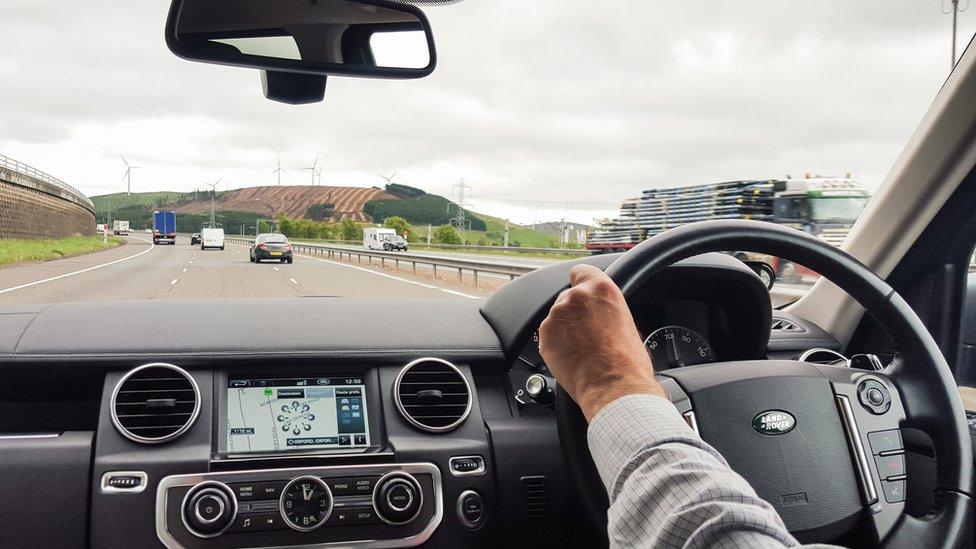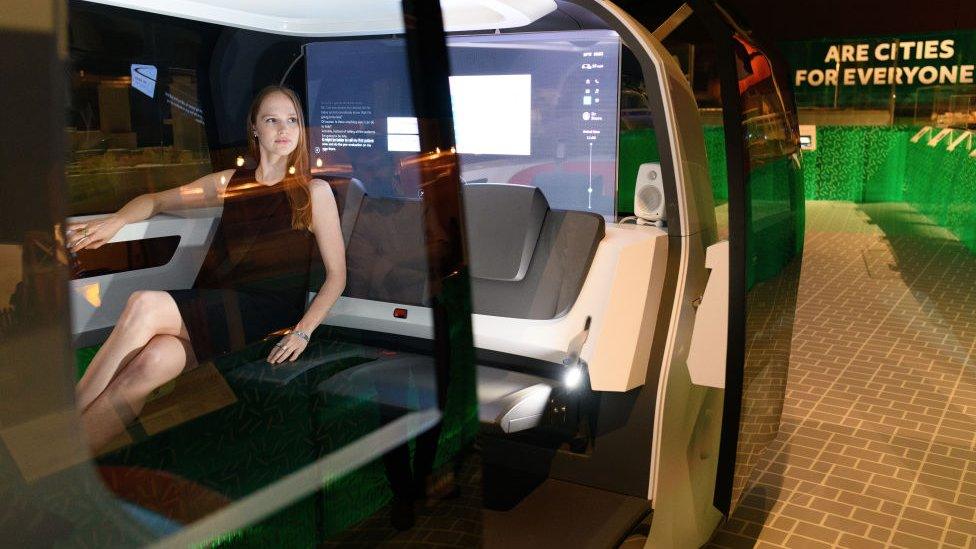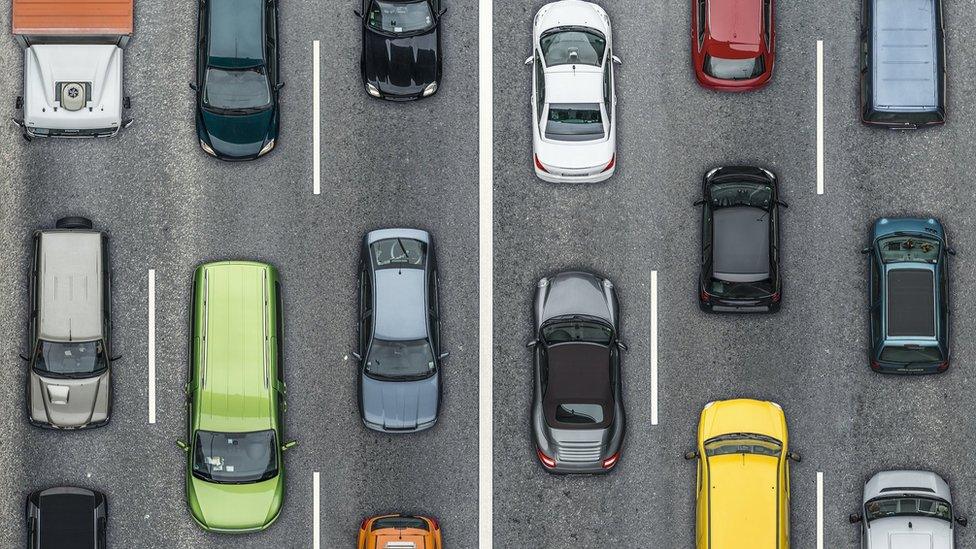Could 'self-driving' cars be allowed on roads this year?
- Published
- comments

Drivers will be allowed to take their hands off the wheel if ALKS is enabled
Self-driving vehicles could be allowed on UK roads by the end of this year, the government has said.
The Department for Transport said automated lane-keeping systems (ALKS) would be the first type of hands-free driving legalised.
The technology controls the position and speed of a car in a single lane but only up to speeds of 37 miles per hour.
But car insurers have warned the government's definition of ALKS as 'self-driving' is not right.
The government has now said that vehicles with ALKS technology can be legally defined as self-driving as long as they pass the right checks.
“This is a major step for the safe use of self-driving vehicles in the UK, making future journeys greener, easier and more reliable while also helping the nation to build back better,” said Transport Minister Rachel Maclean.

Tech experts think cars that drive by themselves could be one of the ways we'll all get around in the future
Drivers will not be required to watch the road or keep their hands on the wheel when the vehicle is driving itself.
But the driver will need to stay alert and be able take over when requested by the system within 10 seconds.
If a driver fails to respond, the vehicle will automatically put on its hazard lights to warn nearby vehicles and slow down.
Source: Department of Transport
However, there have been several accidents involving this technology when drivers did not pay enough attention to the road.
Thatcham Research, which carries out safety tests for motor insurers, warned against calling ALKS the same 'self-driving', as the government has done.
"Consumers will expect the car to do the job of a driver, which current models can't do," said Matthew Avery, director of research at Thatcham Research.
- Published26 September 2020

- Published18 November 2020

- Published23 November 2018

